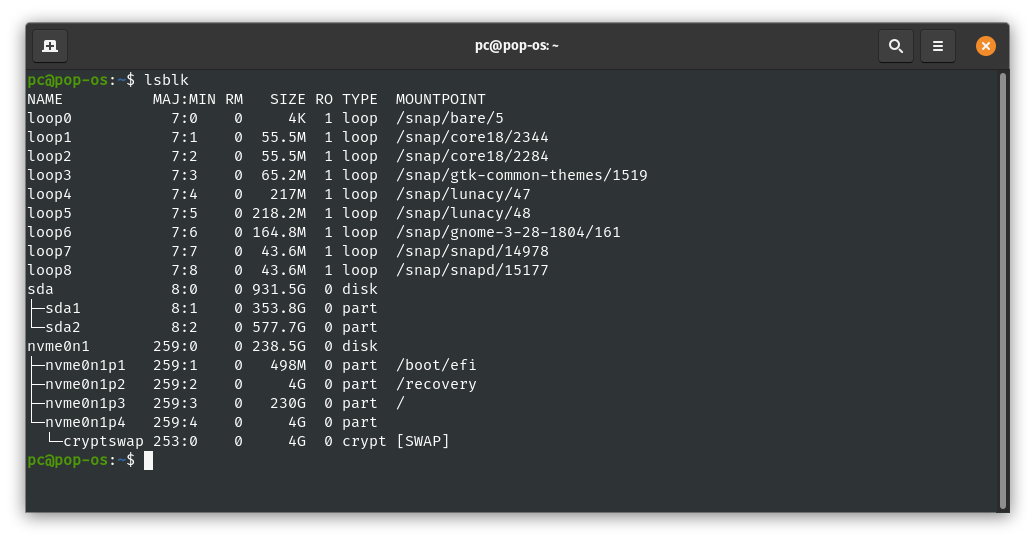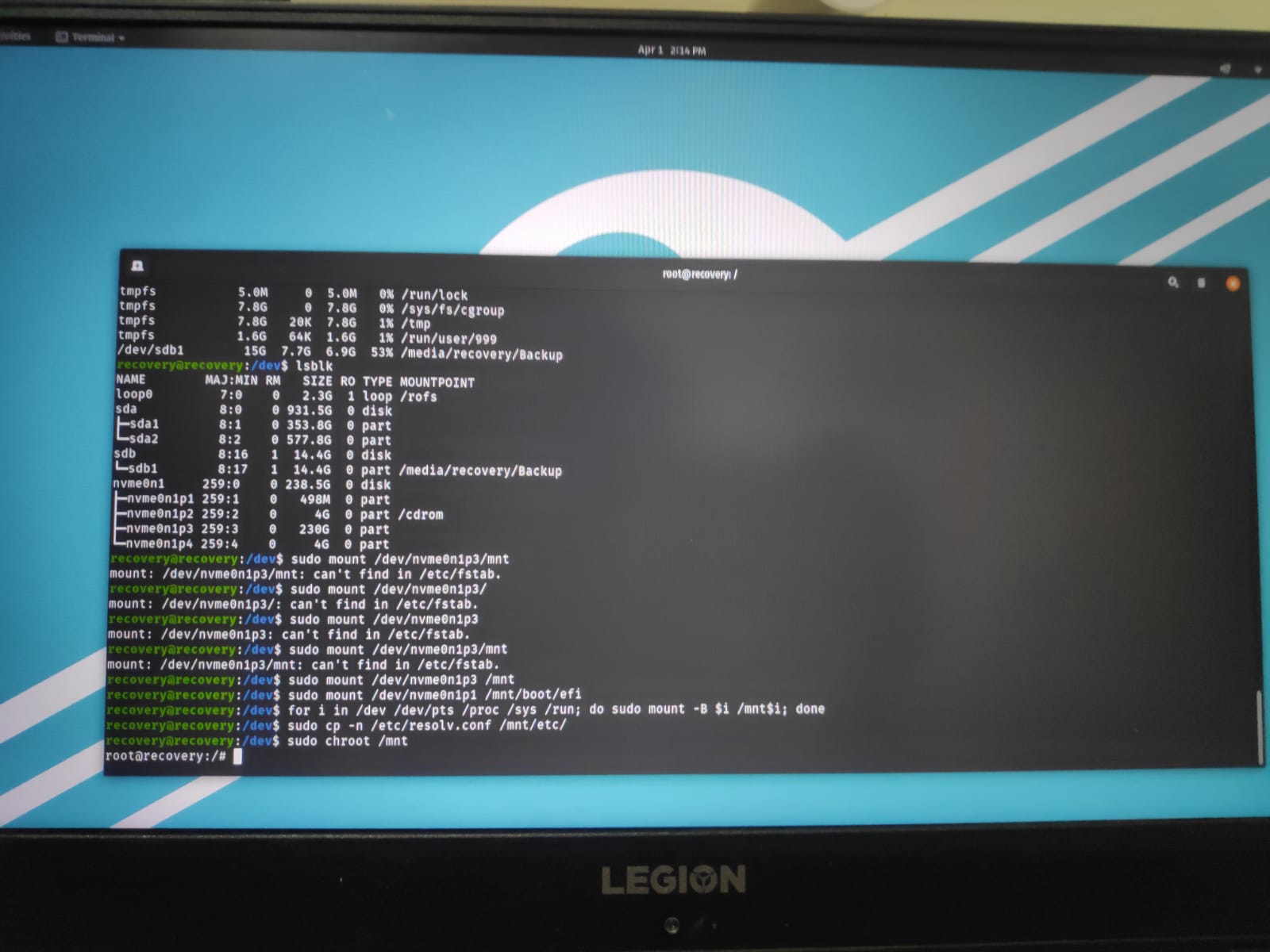I wrote this article after methods in the Pop_OS! article did not directly seem to work for me. Link to the article https://support.system76.com/articles/bootloader
How to spot the error
If you boot your system after an update and Pop_OS auto logins automatically into some default account where all other functions are disabled. You must not be able to open terminal with Super + T and going into TTY1 mode with Ctrl + Alt + F2/F3/F4/F5 also does not work
Next steps
Boot into recovery mode
Press Esc during the boot of your laptop to show the Pop_OS! selector. You must see 4 options there:
- Pop_OS! new kernel
- Pop_OS! old kernel
- Pop_OS! Recovery mode
- Boot into Firmware
Choose the Recovery mode option and let it start up.
Exit the installation option
Once the recovery mode has started you must see an option to reinstall the Operating system and start over.
Click on the option of Continue in Demo mode. This should close the installation window.
Mount the OS drive
Now mount the pre-installed and broken OS drive so that commands can be executed in it
Lets see what drives exist
lsblk
The above command should output the following when: 
Most often your OS is installed in nvme0n1 . Now lets mount it to /mnt location of the recovery OS
sudo mount /dev/nvme0n1p3 /mnt
Then lets add the execution files of the broken OS and create links in order to execute the commands
for i in dev dev/pts proc sys run; do sudo mount -B /$i /mnt/$i; done
sudo cp -n /etc/resolv.conf /mnt/etc
Now lets get into the old OS terminal to execute the commands
sudo chroot /mnt

Execute the commands to fix the broken installation
Here are the commands to clean up and broken installations
sudo apt clean
sudo apt update -m
sudo dpkg --configure -a
sudo apt install -f
sudo apt full-upgrade
sudo apt autoremove --purge
Now lets fix the UI incase its broken
sudo apt install --reinstall plymouth gdm3 gnome-shell pop-desktop linux-generic linux-headers-generic
update-initramfs -c -k all
Close the terminal and reboot
That's it. It should now have fixed your UI and the login screen should work fine!